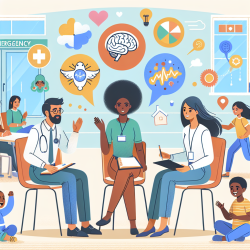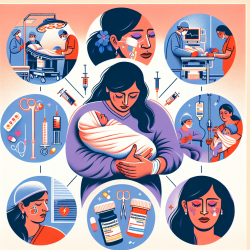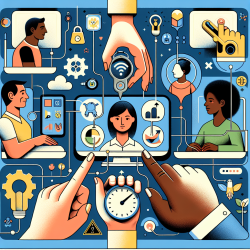The increasing use of emergency departments (EDs) by children and youth with mental health conditions has raised significant concerns among healthcare professionals. A recent study titled Emergency Department Use by Children and Youth with Mental Health Conditions: A Health Equity Agenda reveals troubling trends and inequities in the care provided to these young individuals. As practitioners, it is crucial to understand these challenges and implement strategies to improve care quality and equity.
The Current Landscape
The research highlights that children and youth are increasingly being referred to EDs for mental health issues, often for reasons deemed clinically inappropriate. This trend is more pronounced among African American and Latinx populations compared to their White counterparts. Furthermore, publicly insured or uninsured children face higher rates of ED visits than those with private insurance.
The study underscores the lack of access to behavioral health professionals in EDs, leading to inadequate assessment and treatment for mental health conditions. This situation is exacerbated by extended stays in overstimulating environments, which can worsen the condition of the young patients.
Strategies for Improvement
The research outlines a comprehensive set of strategies aimed at enhancing healthcare quality and promoting health equity:
- Standards Development: Implement standardized data sets to track ED usage patterns, patient demographics, and outcomes. Develop clinical pathways tailored for diverse populations.
- Systems Development: Increase access to evidence-based ambulatory services and prevention programs. Establish alternative assessment centers to reduce unnecessary ED visits.
- Workforce Development: Enhance training for behavioral health professionals, primary care providers, and educators in managing mental health crises among children and youth.
- Quality Improvement: Implement learning collaboratives focused on improving mental health care in EDs. Ensure that EDs have adequate resources and trained personnel.
- Research & Evaluation: Promote a national research agenda focused on improving urgent care for children with mental health needs. Collect data to assess the impact of implemented strategies.
The Role of Practitioners
Practitioners play a pivotal role in addressing these challenges by adopting evidence-based practices and advocating for systemic changes. By staying informed through continuous education and networking with peers, practitioners can contribute to a more equitable healthcare system.
This research serves as a call to action for practitioners to not only enhance their skills but also engage in advocacy efforts aimed at policy changes that support better mental health care for children and youth.
To read the original research paper, please follow this link: Emergency Department Use by Children and Youth with Mental Health Conditions: A Health Equity Agenda.










